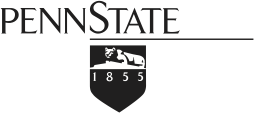Federated Ontologies Knowledge Representation and Inference
(funded in part by a grant from the National Science Foundation)The success of the world wide web can be attributed to the network effect: The absence of central control on content and organization of the web allows thousands of independent actors to contribute resources (web pages) that are interlinked to constitute the web. Recent efforts to extend the web into a semantic web are aimed at enriching the web with machine interpretable content and interoperable resources and services. Realizing the full potential of the semantic web requires the large-scale adoption and use of ontology based approaches to sharing of information and resources. In such a setting, instead of a single, centralized ontology, it is much more natural to have a federation of ontologies that cover different, perhaps partially overlapping, domains (e.g., biology, medicine, pharmacology). Such ontologies represent the local knowledge of the ontology designers, that is, knowledge that is applicable within a specific context. Hence, there is an urgent need for theoretically sound yet practical approaches that support user, context, or application-specific adaptation and reuse of knowledge from multiple autonomously developed ontologies in specific applications. Ontologies on the semantic web need to satisfy apparently conflicting objectives: Selective sharing or reuse of knowledge across autonomously developed ontologies on the one hand and accommodation of the local points of view or contextuality of knowledge on the other. Our research on modular ontologies has led to:
- The development of modular variants of description logics that provide mechanisms for semantic importing of names (including concept, role and nominal names) across ontology modules [Bao et al., 2006a; 2006b; 2007; 2009].
- Decidability and undecidability results for modular ontology languages establishing that (a) variants of distrtibuted description logics (DDL) that allow negated roles or cardinality restrictions in bridge rules or inverse bridge rules that connect ALC ontologies are undecidable; (b) a variant of P-DL ALCHIO(Ø)P that supports role mappings between ontology modules in ALCHIO(¬) (an extension of ALC that allows general role inclusions, inverse roles, pprox. and negated roles) is decidable [Bao et al., 2008].
- The development of distributed tableau-based reasoning algorithms for P-DL [Bao, Caragea, and Honavar, 2006c; 2007b]
- Tools for collaborative development of package-based partial order ontologies for applications in biomedical informatics and comparative genomics [Hughes et al., 2008].
- Development of a sound and complete PSPACE tableau pprox. for the Description logic ALCK, i.e., Description Logic ALC augmented with Epistemic operators to support modeling of, and inference using, knowledge of multiple agents [Tao et al., 2012].
A long-term goal of our research on modular ontologies is to transform distributed data and knowledge base applications in the same way that the World-Wide Web has transformed the construction, sharing and use of hyperlinked documents and Wiki has transformed encyclopedia construction.

